2023 Reading List
January 01 2023This is the reading list for 2023.
- Kitchen Confidential by Anthony Bourdain
- Sea of Tranquility by Emily St. John Mandel
- The Glass Hotel by Emily St. John Mandel
- Station Eleven by Emily St. John Mandel
- Action Hero Scouting Report by Shea Serrano
- Savor: A Chef's Hunger for More by Fatima Ali
- The Loneliest Americans by Jay Caspian Kang
- Number Go Up by Zeke Faux
Kitchen Confidential by Anthony Bourdain
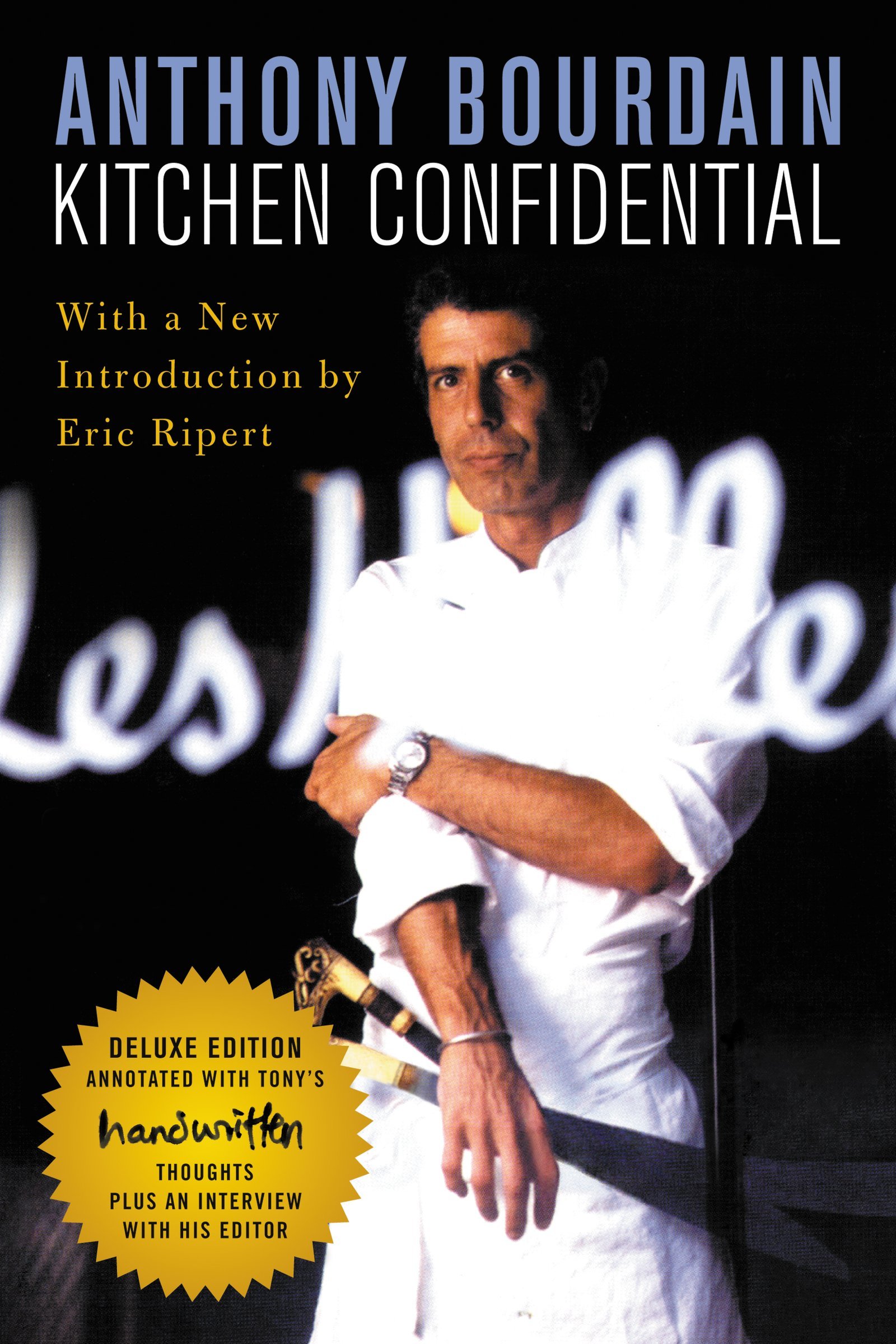
We’ve been binging Top Chef, and as a result, I’ve generally gotten more interested in cuisine and cooking as a career. Anthony Bourdain is one of those guys that I was always vaguely aware of - I watched a few of his travel shows and saw him as a judge on some of the Top Chef episodes. He has a natural charm that exudes from the screen. I never actually thought of him as a chef, though. I don’t remember what possessed me to check out this book, which is essentially his breakout hit, but I’m really glad I did, as this is the most engrossing book that I’ve read in a very long time.
Bourdain’s on-screen charm comes across clearly in his writing as well. I immediately was rooting for him, even though I knew the outcome of his career (he’s mega famous, no longer has to cook, and wealthy enough to do whatever he wanted). This book focuses on his career as a middling chef, bouncing from place to place, struggling with drug and alcohol addiction, and never really “making it”. One of my favorite movies is Ratatouille, and there is a line in there that is especially alluring, when Chef Colette is training the younger Linguini on what it means to be a chef: “We are artists. Pirates. More than cooks are we.” This book captures that sentiment perfectly.
This book very effectively romanticizes the cooking profession without ever actually making the reader want to try it. The hours are long and grueling. The pay is low. The actual work is rote and repetitive. But the culture is very singular, and everyone within the culture seems to understand it and bond on it.
Sea of Tranquility by Emily St. John Mandel
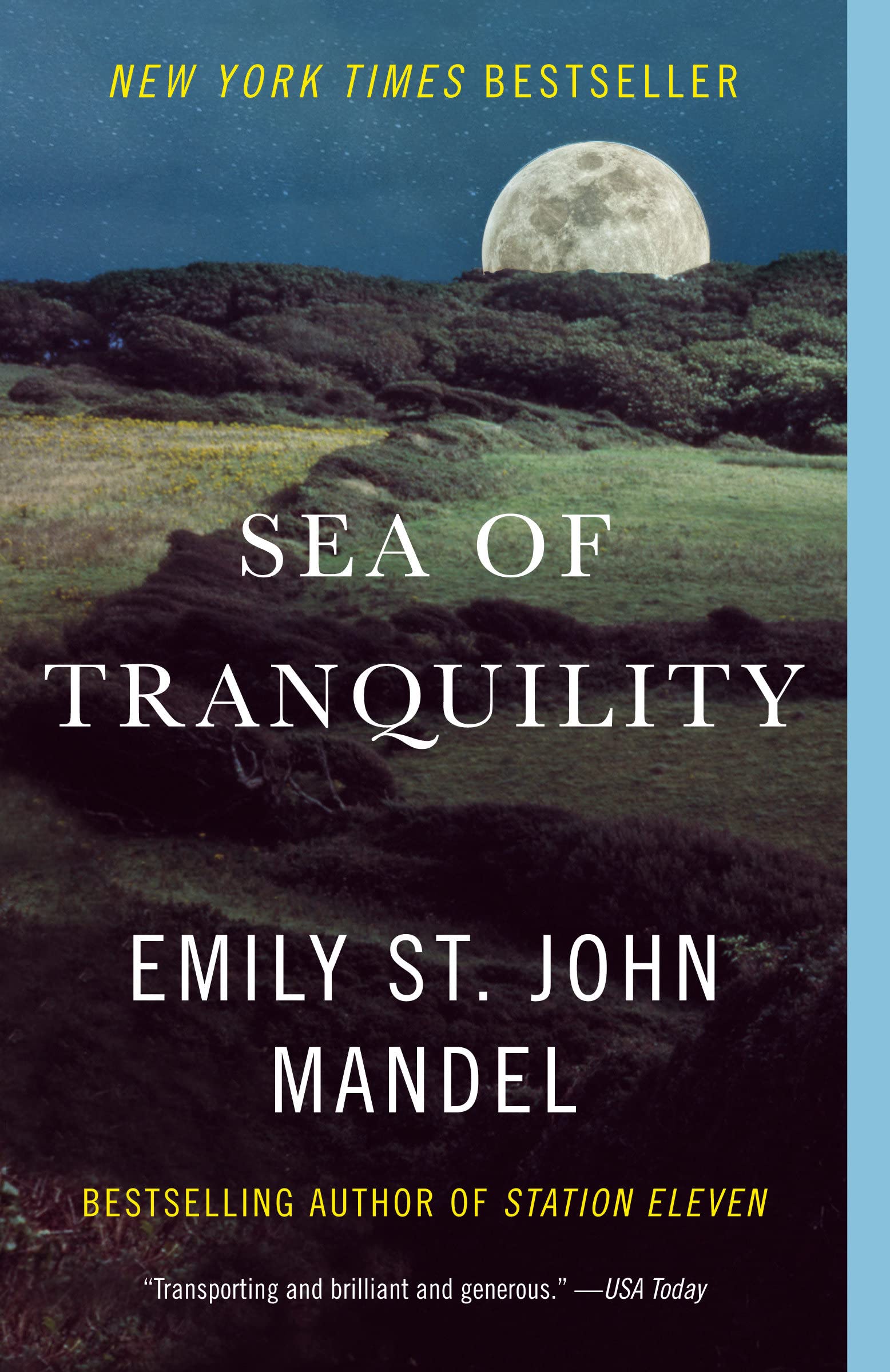
I watched HBO’s Station Eleven and it was my favorite TV series of 2021. It not only captured a lot about living in a pandemic, but it was stubbornly romantic, focusing on the arts and Shakespeare as a means of adding color to a difficult life of survival. I was aware that the show was adapted from Station Eleven, and I decided to check out some of Mandel’s writing. For some reason, I decided to work backwards (Sea of Tranquility is her most recent book).
This was a very quick and easy read. It’s well written, with nice character building, and a hint of sci-fi (there’s time traveling, and the plot wraps itself up beautifully). One of the main characters seems to be based on the author herself, and in particular, how she has dealt with the unexpected fame of becoming a best-selling author.
The Glass Hotel by Emily St. John Mandel
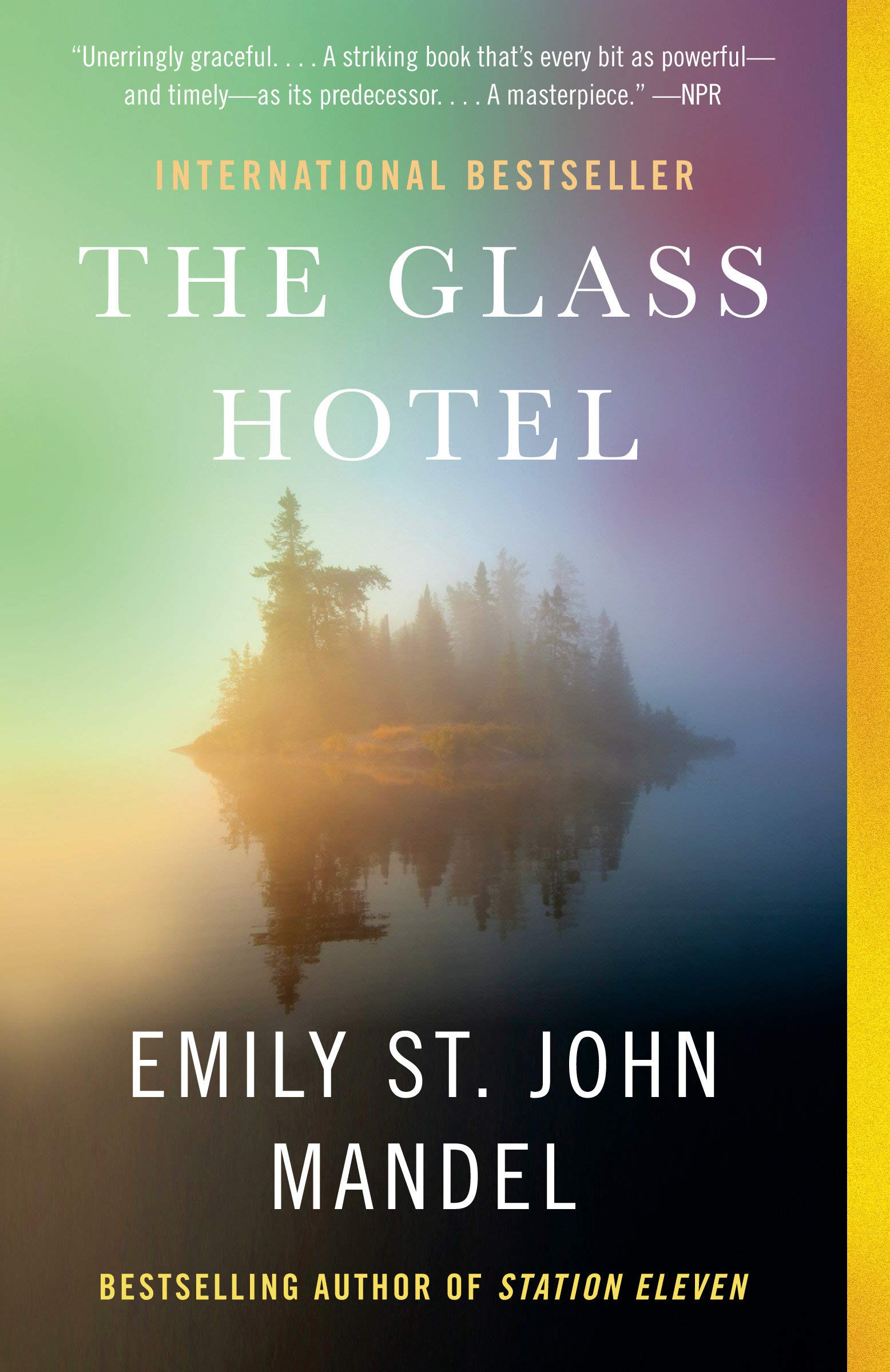
The Glass Hotel is a more in-depth and satisfying read compared to Sea of Tranquility. This book has no science fiction. The characters are more fleshed out. And it’s nice to see a little universe developing between the author’s last three books (this one, Sea of Tranquility, and Station Eleven).
This book is a loose fictionalization of the Bernie Madoff pyramid scandal, but mostly from the vantage point of Vincent, a young trophy wife of the novel’s Madoff stand-in. Vincent is really well-written. It feels easy to know and understand her. And her decisions at the end of the book, while seemingly quite surprising, are in context not at all surprising.
Station Eleven by Emily St. John Mandel
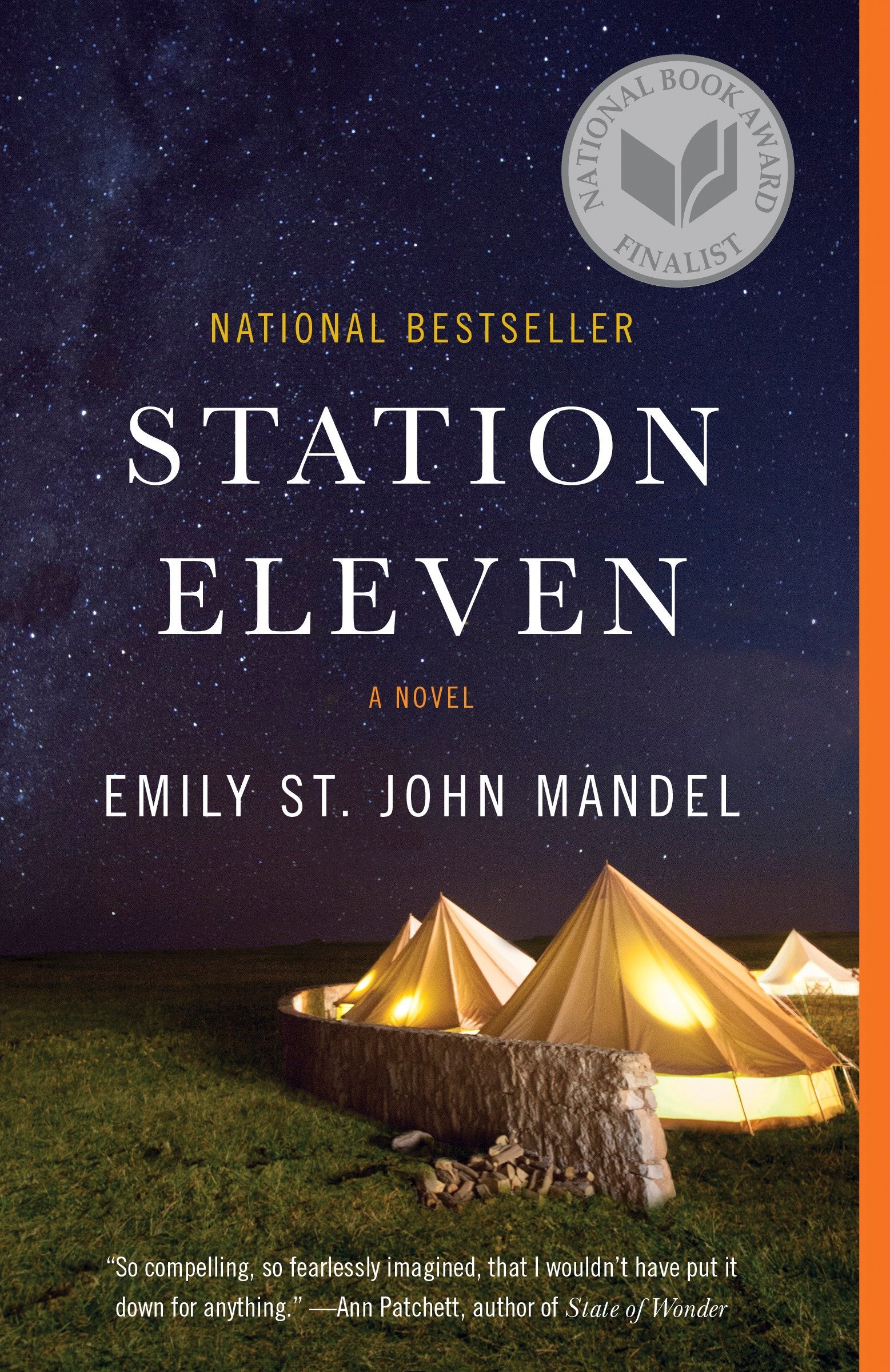
And now finally I’ve read the book that started this little Mandel binge. Station Eleven is a beautifully written book, with an interesting theme. We’re in a post-pandemic world, but “survival is insufficient”.
The story itself is not as entwined or satisfying as the HBO adaptation, which really took a lot of liberties with the plots and the characters. In this one, there is no Jeevan and Kristin story line beyond the first night of the play, and hence no union at the end. The Tyler / Prophet story line ends quickly and suddenly, and in restrospect, his character is actually pretty weak in the book. Still, the basic beats are the same. Shakespeare and music play a huge role in the central theme - that even though humanity is reduced to an absolute struggle for survival, there is still a time and a necessity the unnecessary things.
Action Hero Scouting Report by Shea Serrano
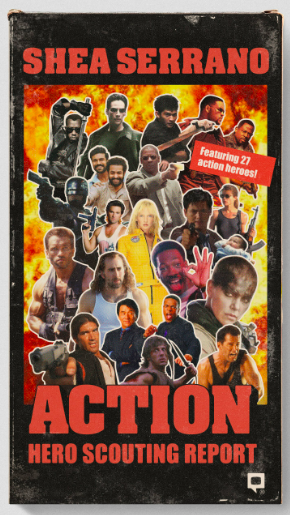
Bill Simmons once introduced the concept of a “season pass” for actors, as in, whatever movie or show that actor is in, I’m going to check it out. Well, I think I have a season pass to Shea Serrano. He’s an inspirational story, from teacher to writer. He created a TV show based on his life (Primo) which is actually really funny. And of course, I’ve been reading his “and other things” books series, such as “Basketball and other things”.
This one is a short one, where he just lists a bunch of action hero movie characters and produces a scouting report on them, including rating their origin story, skills, humor, etc. It’s a predictably easy read and I finished it in roughly an hour while on an airplane ride. Still, it was enjoyable and funny, and it was a bit of trip down memory lane for some movies that I had watched long ago but never really thought about again. One such example was Rush Hour - reading this actually prompted me to rewatch the movie, and it really is quite wonderful as a piece of popular cinema, with nice (but dated) jokes and some kung fu action.
Savor: A Chef's Hunger for More by Fatima Ali
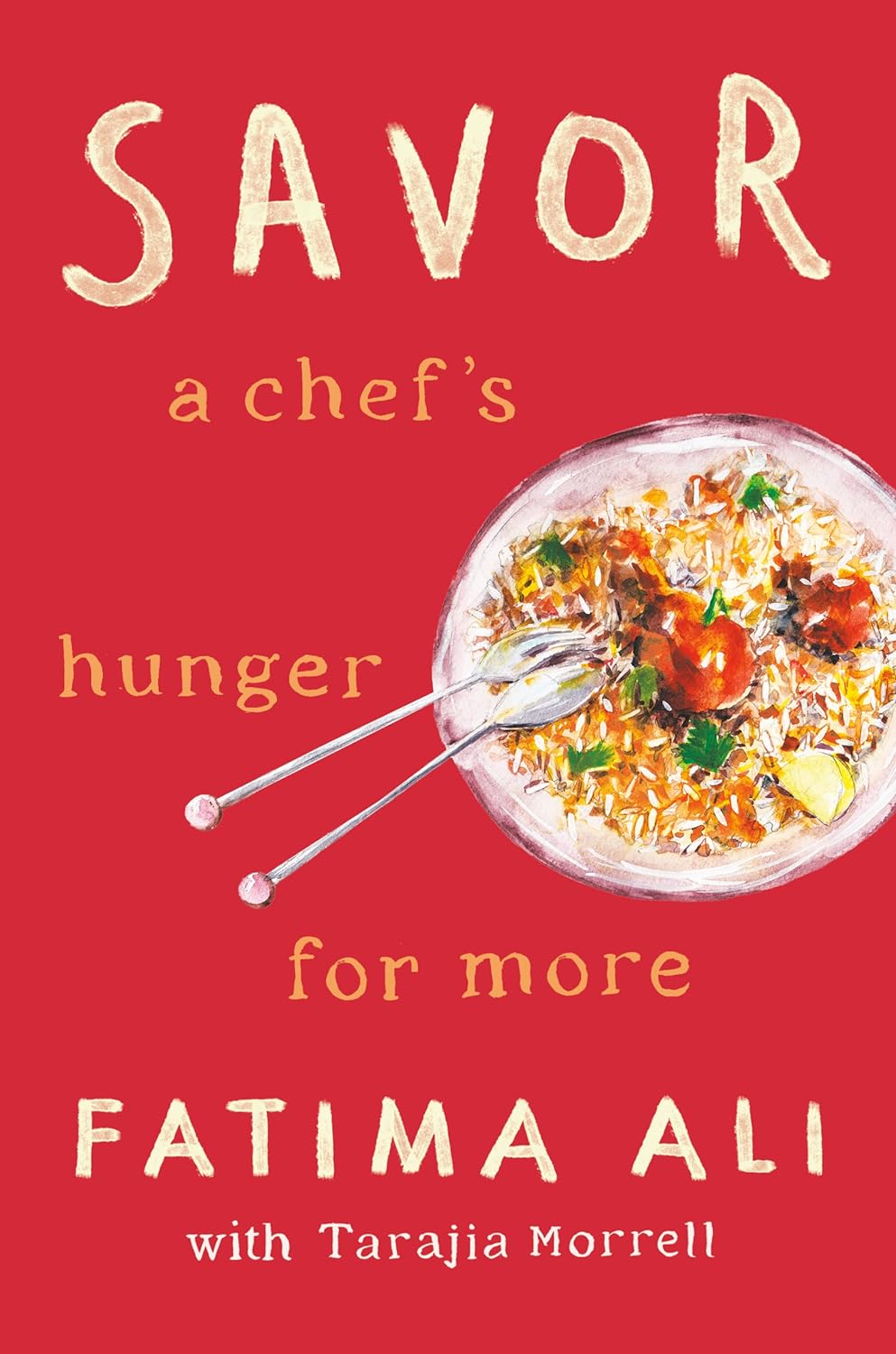
We first came to know about Chef Fatima Ali through the cooking competition show Top Chef. Fatima was a sweet, lovable chef who cooked with Pakistani flavors and had fierce loyalty to her friends on the show. Later on, we found out that her life was tragically cut short by a rare form of cancer while still in the prime of her life. This book was written in her last year as a memoir.
The book details in considerable detail her life and family, with narration mostly by Fatima but also by her mother. Fatima grew up in Pakistan (although with a quick pit stop through Texas) as part of a divorced family, which was almost unheard of at that time in Pakistan. She endured personal challenges (including at one point being the victim of child sexual assault by the family driver). She was incredibly type A and accomplished - the kind of kid that would always be top of the class, both literally and gradewise.
Coming out of this book, I got even more respect for how difficult the life of a chef can be. Fatima never was able to cook her own food - there just wasn’t ever enough money, opportunity, or time for that. But she was still able to put her life into a sunny and hopeful perspective. She never once sugarcoated how much her cancer or chemotherapy sessions sucked. But she also didn’t complain. We have the time that we have. Fatima got more out of her less than 30 years than many get out of a lifetime.
The Loneliest Americans by Jay Caspian Kang
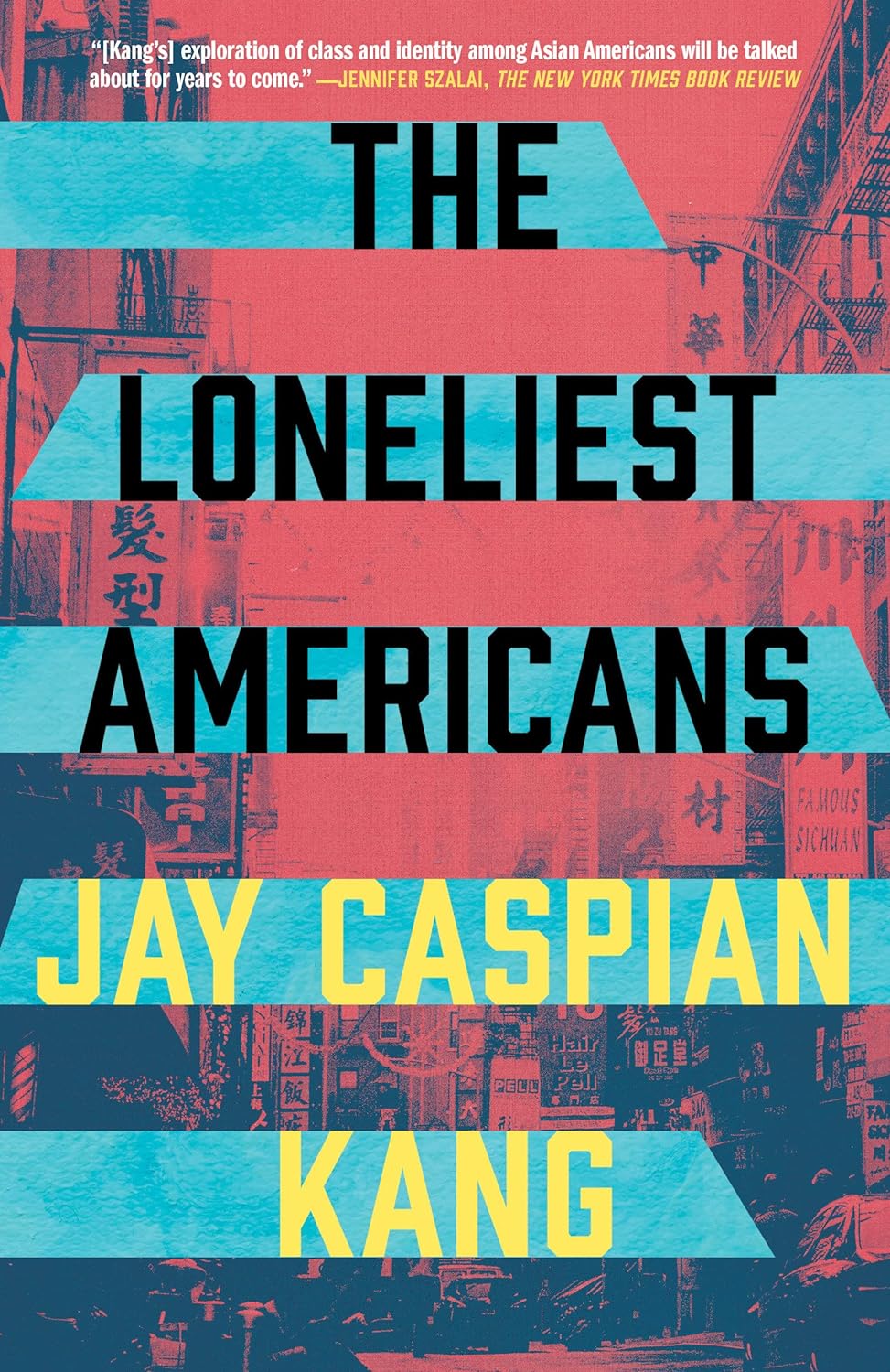
I first read Jay Caspian Kang at Grantland, during the height of Linsanity, when ESPN ran a cover page with the headline “Chink in the Armor”. Kang wrote a measured response that proved he understood just what it was like to be a (white) Asian growing up in the US. I put (white) in parantheses because he, like me, is Asian American. But for all intents and purposes, we grew up white. We didn’t grow up surrounded by our own people, but rather by white people.
This book is his attempt to both encapsulate some of those feelings as well as to tell a brief history of how Asian Americans came to be. The challenge is that Asian Americans are held to the standards of white people (high achieving, high income) without fully being accepted into the club. But yet, we are also not accepted by the Black or Hispanic community, even though we are non-white.
Kang details several great examples of how this works in practice, and I learned a lot. I didn’t know about the long history of mistrust between the Black and Korean communities in Los Angeles, which led to fullscale looting of Korean retail stores during the 1992 riots. I also didn’t know about the idea of MRAZNs (essentially Asian incels), who feel victimized that the world is against them (particularly that Asian women often date white men). I also liked the idea that the term “Asian American” is actually very new (it originated ~50 years ago) because previous to that, Asians didn’t think of themselves as a group. They thought of themselves as Chinese, or Vietnamese, or Korean, etc.
Ultimately, I don’t think this book changes my worldview on race, but it was educational. I do think that Asians are in a delicate balance here in the US, where we are not fully accepted other communities. But I also think that this is more or less true of any race, it’s just that the challenge for Asian Americans is that our numbers are much smaller compared to the Black and Hispanic communities. For me, personally, I will continue to find and live in places that minimize my racial identity. It’s why I went from one extreme (growing up Chinese in a small Minnesota town) to the other extreme (now living in a suburb near San Jose, where my local high school is made up of ~90% Asian kids). Here in Cupertino, I don’t stand out, and I prefer it that way.
Number Go Up by Zeke Faux
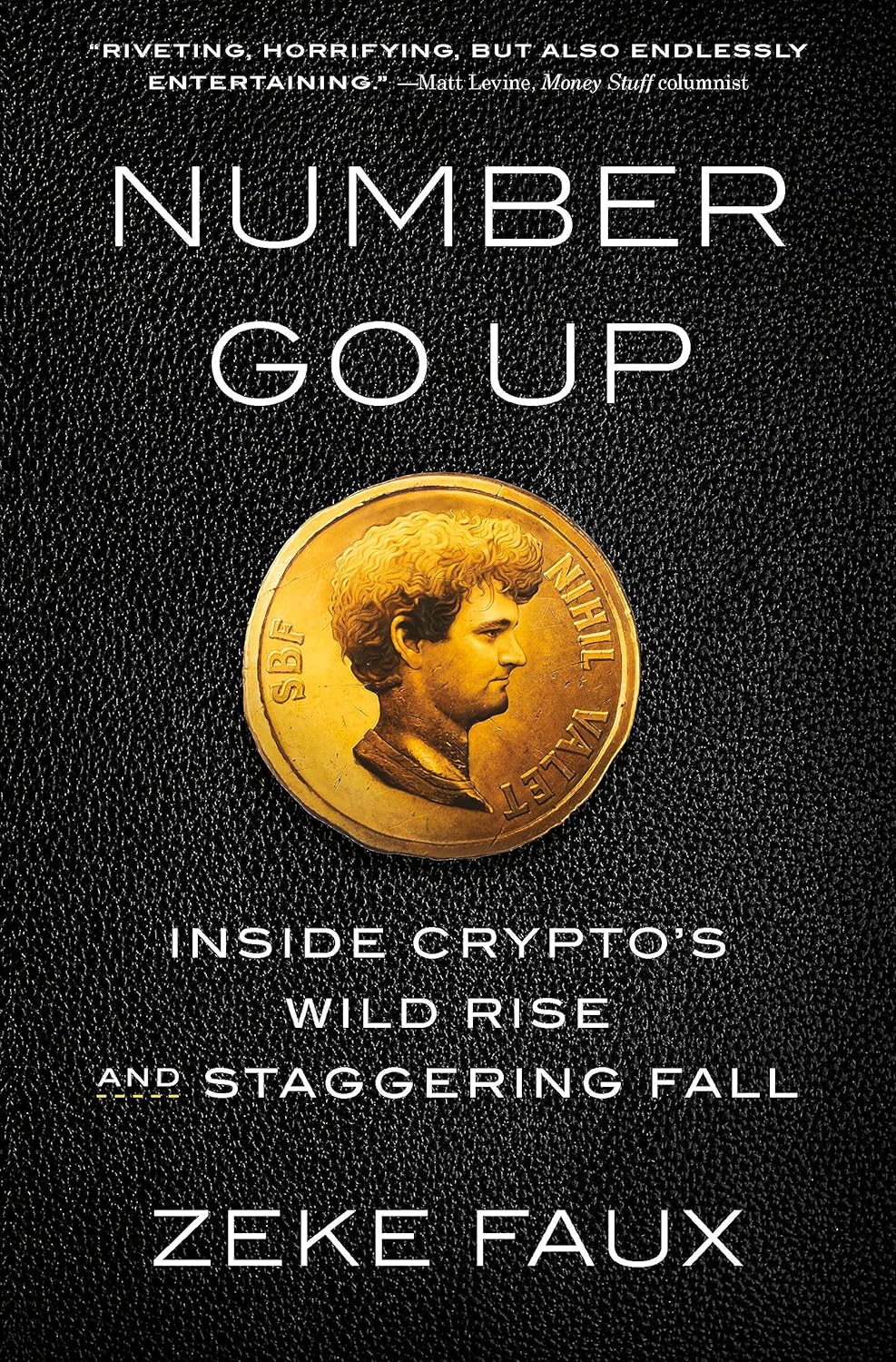
I completely devoured this book in 24 hours. It is a well written, breadth-wise account of the crypto boom. The central theme of the book is the author’s investigation of Tether, the crypto currency that is supposed to be a stablecoin and pegged 1:1 with the US dollar. Faux doesn’t find anything too shocking - the people behind crypto are a bunch of incompetent, bungling scammers. But he does make the characters come alive with descriptive back stories and real in the moment conversations.
I never “got into” crypto. It was always this tech adjacent thing, and of course I had small feelings of FOMO (particularly during the NFT craze). But truthfully, it always just sounded so dumb to me, and I was never actually lured by its get rich quick community. However, I did observe a lot of these stories in realtime through Twitter and just general news articles. And still, I learned a bunch from this book.
comments powered by Disqus